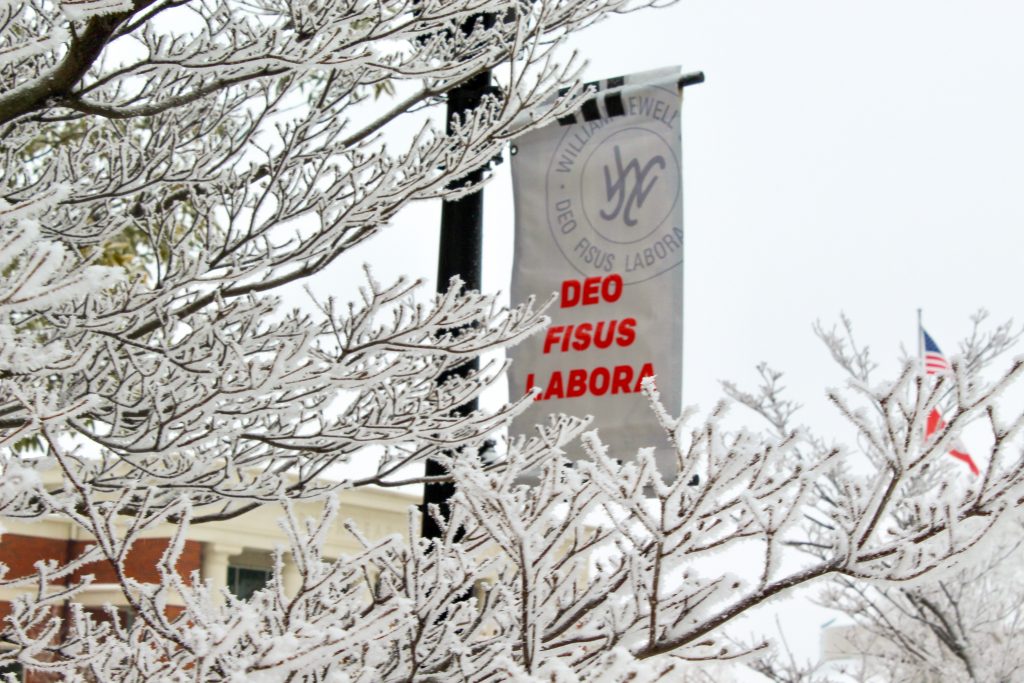
In October of 2019, William Jewell College announced a new position intended to help efforts to diversify the campus: the Vice President for Access and Engagement (VPAE). Soon after, they announced they had filled that role with Dr. Rodney Smith, who has previously worked as a consultant for Jewell through Sophic Solutions – a company run by Smith and his wife Stephenie.
Since joining the Jewell community, Dr. Smith has been an active team member in the diversity and inclusion conversations. He has helped to implement new policies and ideas and has contributed to the new diversity-focused library collection, the Critical Foundations Collection, which is soon to be on the second floor of the PLC.
The Hilltop Monitor previously interviewed Dr. Smith before he officially started as VPAE, but we sat down with him again to get an update on how things are going, what we can expect and what the next steps are in the conversation around diversity and inclusion.
What progress do you think Jewell is making regarding diversity and inclusion?
Smith: “I think the biggest progress we’re making may not be visible. The progress may be that we are having campus-wide conversations about the importance of diversity, equity, and inclusion. It’s a topic that we talk about daily, literally… The conversations are being had widespread across campus.”
So far, in your position as VPAE, what is your favorite thing you’ve been able to work on?”
“Several, but I think one of the ones we have received traction on is in partnership with library services and the BSA club, we have established a diversity, equity and inclusion collection. It features a lot of authors, writers and scholars of color that write from the perspective of, of course, scholars of color. It speaks to this notion of, in order to really be a diversity minded individual as well as a whole campus, we have to be reading thought leaders who think about and write about these ideas. I also believe that as a campus of higher education, we need to expand what we see as being considered a well-read individual.”
What is one thing you definitely want to accomplish in this position?
“I want us to accomplish the goals of having a more diverse campus. I want us to really get there. One of the goals is to increase [the number of people] who come from diverse backgrounds. I think the number is 12 percent, which does not sound like a large number, but when we have such a small campus, 12 percent is significant, especially if we can increase those numbers over the next two or three years. I would like to see us have those small wins like that. It would be really nice if we could exceed those goals and then get to a point where we don’t even have to set these goals. That would be success to me, where our campus is just naturally emblematic of the surrounding community, it just happens naturally.”
What’s one step you see the College taking that makes you proud to work here and be involved in this action?
“One of the things… there are two scholars on our campus who are doing really significant research into the institution and slavery. That may sound strange to hear the VPAE saying that, but that is exciting. I think it is a pretty powerful statement that this institution is willing to uncover a somewhat checkered past in order to understand itself better, but also in an effort to acknowledge its past.
“I think too frequently in our society, in general, we try to divorce ourselves from our past as a society. I think this contributes to the fact we haven’t made much progress as a nation, because we haven’t been honest about our past. I think that with Jewell doing that kind of work to unpack and discover its connections to the institution of slavery, some may disagree, but I think it’s a positive step in the right direction. Again, it provides a better understanding, a better perspective, on who we are as an institution. In some regards, hopefully, we lead the way for not just other colleges and universities, but other institutions and organizations who will examine their history and understand their history.”
Do you think students are making steps to diversify in their school community?
“I think so. I use the Black Student Alliance as an example. From what I understand, it used to be called the Black Student Association. They went through a name change and changed [‘association’] to ‘alliance’ because it was an invitation to create alliances across campus and not just with Black students. I think that is a powerful idea and a powerful statement in the right direction to recognize that ‘I want to build community in whoever will build community with me’… It doesn’t necessarily mean we have to have the same background ethnically, socioeconomically or otherwise. All we have to do is be willing to be in alliance with each other. I saw that as a powerful step in the right direction. It will open up conversations.”
Smith is working hard to make the campus as inclusive as possible. His mission is noble, but he stresses the fact that without honesty, there will be no reconciliation. Smith’s energetic message through all of this is that, as a campus, we must work together to stimulate as much conversation as possible and do so with an almost painful level of honesty. He encourages everybody on campus, and the institution as a whole, to keep trying, to keep listening and to keep pushing for more. There is work being done, but there are more changes to be made.
